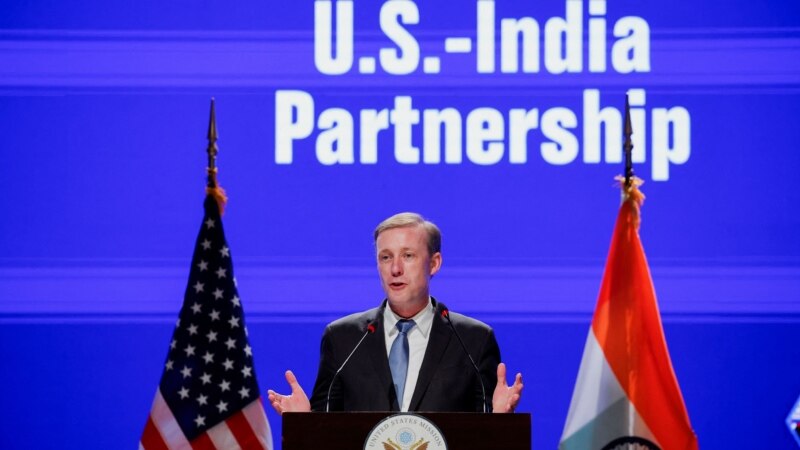
The United States is finalizing steps to remove obstacles to civil nuclear cooperation with Indian companies, US National Security Advisor Jake Sullivan said in New Delhi on Monday, calling it an important step in consolidating the bilateral partnership between the two countries.
A historic deal signed in 2007 between India and the United States ended three decades of sanctions imposed on New Delhi for carrying out nuclear tests and opened the door for India to obtain civilian nuclear technology. The deal is expected to help India meet its growing energy needs.
But Indian rules that require liability in the event of an accident to be borne by the company that installs a nuclear power plant rather than the operator – which does not meet global standards – have posed an obstacle to American companies establishing power plants in India. .
Asserting that “red tape” to remove long-standing regulations on civil nuclear cooperation will soon be over, Sullivan said “this will be an opportunity to turn the page on some of the frictions of the past and create opportunities for entities that have been on a restricted list in the United States to get off these lists and establish in-depth collaborations with our private sector, with our scientists and technologists.
Sullivan’s visit to India came two weeks before a new administration led by newly elected President Donald Trump takes charge. Speaking at the Indian Institute of Technology in New Delhi, he called India-US collaboration crucial for peace and stability in the Indo-Pacific region.
Analysts say the visit underscores the strong India-US partnership built in recent years and the likely continuity of those ties amid shared concerns about China and strong bipartisan support for the relationship.
In an editorial, The Indian Express The newspaper noted that an important commonality between Trump’s previous term and President Biden’s administration was the US policy of strengthening the strategic partnership with India. “These bilateral conversations during the final days of the transition between the two administrations in Washington underscore growing strategic congruence,” the paper said.
Sullivan said an initiative the two countries launched two years ago to strengthen their strategic technology partnership was an important part of the relationship.
Under the Critical and Emerging Technologies Initiative, the two countries are working to deepen cooperation in areas such as quantum computing, defense, artificial intelligence, 5G wireless networks and semiconductors – areas in which China has acquired a dominant position.
Noting that supply chains are leaving China, he said “the United States, India and other key democratic partners have been sharply and clearly reminded that we cannot ignore how interdependencies can be used as a weapon against us.
“The visit is basically a signal from the Biden administration that India-US relations are important and that their cooperation on critical technologies is an important aspect of that relationship,” according to Manoj Joshi, distinguished scholar at the Observer Research Foundation in New Delhi. “But even though the stars are all aligned for New Delhi and Washington, we really don’t know how this is all going to play out under Trump.”
Sullivan met with Indian National Security Advisor Ajit Doval and Indian Foreign Minister Subrahmanyam Jaishankar in New Delhi. In a post on social media platform X, Jaishankar said: “We continued our ongoing discussions on deepening bilateral, regional and global cooperation. I have appreciated the openness of our conversations over the past four years.
New Delhi and Washington have forged close ties in recent years despite differences over India’s continued ties with Moscow since Russia’s invasion of Ukraine and tensions over the alleged involvement of a former employee of the Indian government in a foiled plot in 2023 to assassinate a Sikh separatist who is a US national.
USA voanews

